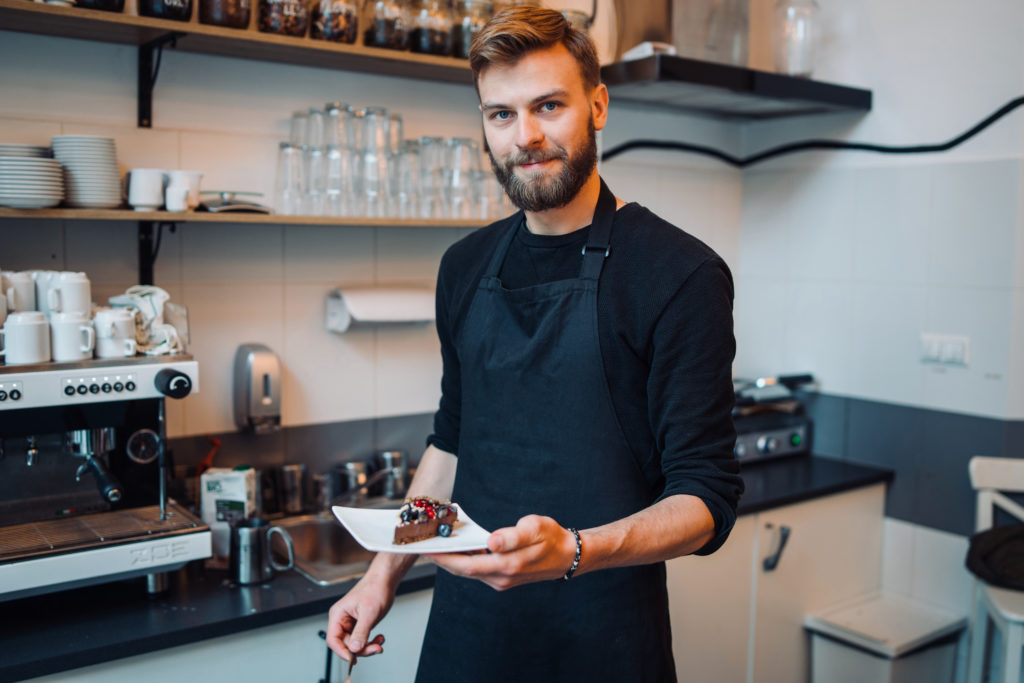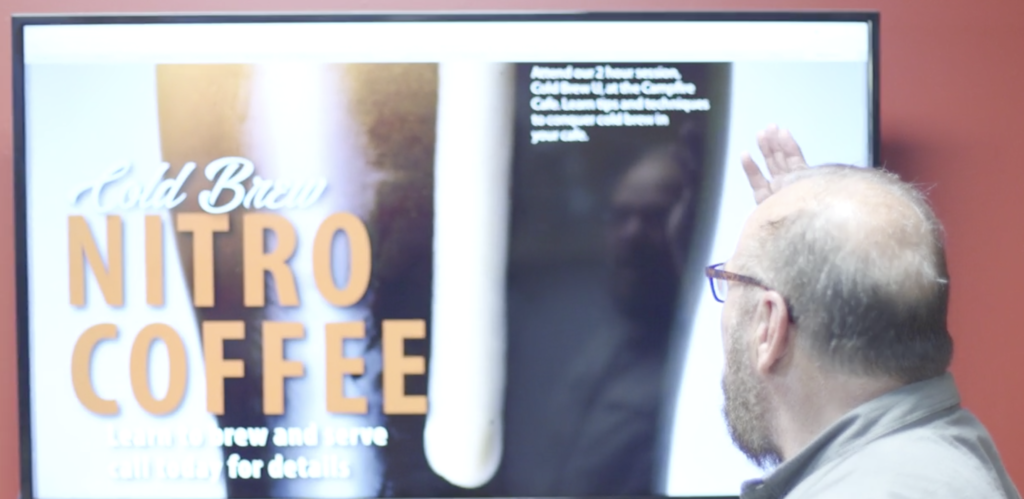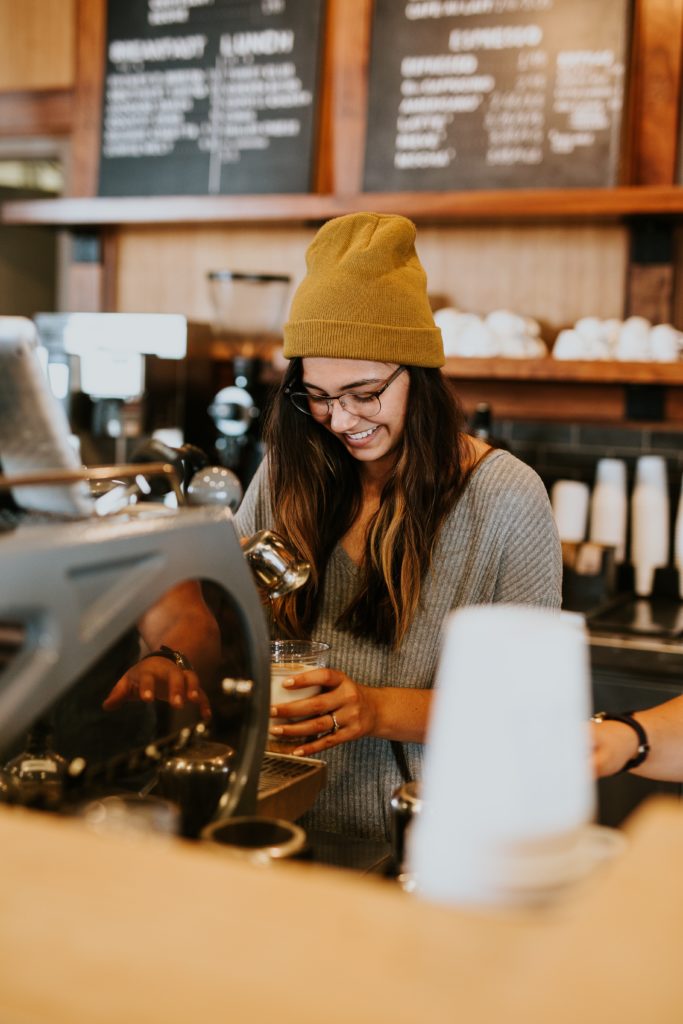NEW! Save 5% OFF when you subscribe from these select coffees. Click Here.
FREE SHIPPING on all retail orders of $35+
Mon – Thu: 8am-5pm CT | Fri: 8am-4pm CT
NEW! Save 5% OFF when you subscribe from these select coffees. Click Here.
FREE SHIPPING on all retail orders of $35+
Mon – Thu: 8am-5pm CT | Fri: 8am-4pm CT

When it comes to the foundational elements of marketing a cafe or coffee shop, you generally start with the 4 P’s. Price, Place, Promotion and last but not least, PRODUCT.

Coffee drinkers have lots of options these days. No matter how inexpensive your coffee is, no matter how good your location is, people will drive somewhere else, or walk a few extra blocks, if you’re PRODUCT isn’t the best. So what are some ways that you can ensure that you have the best product?
We’re obviously biased here, so we won’t belabor the point about emphasizing the importance of the sources of your beans. Friedrichs Coffee focuses on having the highest quality weekly roasts. But we know that there are cafes that have multiple sources of beans and teas. The only emphasis we’ll make is that you should be focusing on every single batch that you order, and checking that it’s consistent quality (our offerings included.) This is paramount in affirming you are offering the best cup of coffee.
Hiring and training skilled baristas is a massively important task, that isn’t always given the most attention. Focusing on your staff, both their hard skills, and soft skills, you are ensuring that the quality of your product will produce returning customers.

When we speak about hard skills, we’re primarily speaking to the technical skills required to be a barista. So how do you invest in the technical skills of your staff? Do YOU invest in them or do you require certain credentials and experience from your baristas?
It may seem overwhelming to think through a barista training program. The good news is, there are quite a few resources out there that already exist. The obvious first place to look is SCA. https://sca.coffee/education/programs/coffee-skills-program
– while these are fantastic places to start (online courses or resources), you’ll need to tailor your approach, based on the clientele and applicants you have within your café. Barista’s that are excellent at their craft need something that is ongoing and hands-on. All of the gross margins, bean source and arrangement of chairs don’t mean anything if you as a cafe owner can’t communicate well, the ability to make great coffee.
The best way to transfer your knowledge is in the proper setting. Coming in before and staying late to share the technical skills. This could mean paying your baristas to learn, but again there are downstream effects, of this investment of time and effort into one of your best resources, your product. Taking courses or learning before the cafe opens is a great start, but the real training happens when they get that first order in the morning. The reality is, when you hire someone new, they won’t be molded into how you want them to make your coffee. So mold them. Give them actionable feedback.
So how do you give good feedback?
There is a point where too much feedback can be overwhelming and people feel micromanaged. People can only improve at a few things at once. Most people do better in 1:1 feedback, but a group setting could be appropriate, especially if it’s a scheduled weekly or monthly meet-up. Every barista has their own skill level that they are performing at, so it’s tough to give general overarching feedback that is very helpful.
Give feedback in the moment. A lot of people wait until later when the 2pm lull comes around to try and correct a mistake. The best way to actually learn is to learn in the moment and for the mistake to be addressed immediately.

A team’s culture is absolutely defined by the way in which you treat them and the customers. The largest part of this skill is taught and caught on the job. But this is also where intentionally establishing expectations is crucial for a successful soft skilled barista. They will absolutely see how you interact and talk about customers when they are there, and when even after the customers leave. This goes beyond just a general level of respect. This is more a matter of, wanting to better understand each and every customer as a unique opportunity to “wow.”
Filling up the emotional tank of your baristas is absolutely essential for them to enjoy coming into work. Take time to listen to them. For example, scheduling can be tough. Hour workers have things come up and are going through things that you as a business owner may perceive as trivial. To them, they are insurmountable issues. Empathize with them.
Lastly, Take them on the journey with you. Share your thoughts and dreams about what type of environment and business model you want to take your cafe. We’re not suggesting you give them access to your QuickBooks, but let them dream with you. And listen to what they have to say. They may have great ideas. They will fell heard, appreciated and ultimately be happier workers who want to work hard for what they enjoy.